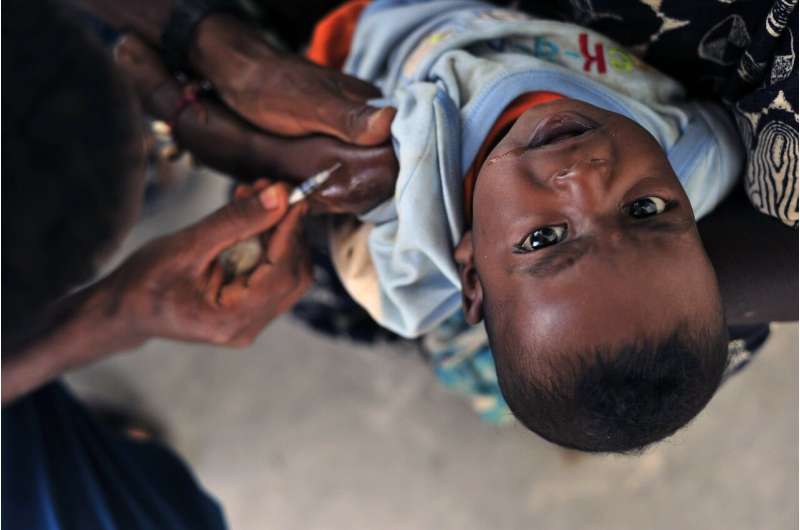This article has been reviewed according to Science X's editorial process and policies. Editors have highlighted the following attributes while ensuring the content's credibility:
fact-checked
peer-reviewed publication
trusted source
proofread
Researchers say media focus on vaccine hesitancy distorts reality

Media stories focusing on vaccine hesitancy can distort reality and drive a false narrative that a large percentage of parents is refusing to get their children vaccinated, according to an editorial in the New England Journal of Medicine by two pediatricians from the University of Colorado Anschutz Medical Campus.
The article, published online in the Perspective section of the medical journal, said stories indicating widespread vaccine hesitancy among parents are at odds with the facts and can have long-term consequences.
"The algorithms that shape our media diets have been promoting the idea that parental hesitancy about routine childhood vaccines has become commonplace in the United States," wrote Sean O'Leary, MD, MPH, and David Higgins, MD, MPH, of the University of Colorado School of Medicine and Children's Hospital Colorado.
"The data, however, are undeniable: apart from important challenges with influenza and COVID-19 vaccination, the vast majority of parents in the United States continue to choose to have their children vaccinated according to the vaccination schedule recommended by the Centers for Disease Control and Prevention (CDC) and the American Academy of Pediatrics."
According to the authors, a recent poll from the Pew Research Center found 88% of adults have robust confidence in the value of childhood vaccines such as those for measles, mumps, and rubella. The poll also showed little change in the numbers of adults who say the value of vaccines outweigh any associated risk.
At the same time, a recent study from the CDC showed that 93% of kindergarten students had received state-required vaccines. Another study revealed that vaccination coverage for children at age 2 remained high and stable throughout the pandemic.
"The headlines say vaccine resistance is through the roof, the sky is falling," said O'Leary, professor of pediatrics and infectious diseases at the CU School of Medicine and Children's Hospital Colorado. "There is a real risk of the community buying into this and treating it as the norm."
Higgins, a fellow and instructor in pediatrics at the CU School of Medicine and the Adult & Child Center for Outcomes Research & Delivery Science (ACCORDS) at the CU School of Medicine, said constant focus on vaccine hesitancy could become a "dangerous, self-fulfilling prophecy."
He said perceived social norms, or what people consider typical behavior, can powerfully influence their health care decisions.
"The most important thing we can do is normalize vaccinations. That's what the majority of parents do, vaccinate their children," Higgins said. "We in the scientific community need to better communicate the value of vaccinations."
Studies show that vaccine recommendations from physicians are more effective when framed in a way that presumes parents want their kids vaccinated. If clinicians expect resistance, the recommendations may be less effective.
"Legitimate inquiries about vaccines don't necessarily indicate major parental vaccine hesitancy. In our experience, most parents with such inquiries aren't antivaccine; they believe vaccines are essential to their child's health. One of the best parts of being a pediatrician is partnering with parents to address these good-faith questions," the authors wrote.
O'Leary, chair of the Committee on Infectious Diseases for the American Academy of Pediatrics, said not only do most adults support vaccinating their children, but since the onset of the pandemic and contrary to many media stories, pediatricians have told him that parents who had previously refused to vaccinate their kids are coming in to get the inoculations.
Neither doctor is suggesting that vaccine hesitancy isn't a significant health threat in the U.S.
"We believe it will be essential to double down on efforts to increase confidence and trust in vaccines, including in populations that have experienced mistreatment by the medical community," O'Leary and Higgins wrote. "Because of the complexity of this issue, addressing parental vaccine hesitancy requires partnerships among academic experts in various disciplines, community leaders, policymakers, public health professionals and parents."
More information: David M. Higgins et al, The Risks of Normalizing Parental Vaccine Hesitancy, New England Journal of Medicine (2024). DOI: 10.1056/NEJMp2313742





















